PHP empowers a gigantic part of the internet. So it is, by definition, a very popular (i.e. prevalent) language. But it also very popular (i.e. well-liked) to dislike PHP as a — serious — language.
This could be explained as one of the side effects of that same popularity. With great exposure, comes greater scrutiny. But that would be too easy.

Because when discussing PHP as a serious computer programming language there are serious arguments of what PHP exactly lacks as a language. And of course a lot of these things are fuel for endless, and useless, debate. Also because even the author of PHP, Rasmus Lerdorf, would probably agree on most!
It seems like a popular past time to debate everything that is bad about PHP. So over the years there have been several (viral) blogposts about this: here, here, here and here (which spawned this great response).
Even with all the changes made to PHP in recent years, this is still a common sentiment regarding PHP. This is also illustrated by a recent remark from highly respected programmer Drew DeVault:

So PHP certainly has it fair share of critique (it is no Lisp!).
So why is it so popular?
I certainly have NO need to add my two cents to this debate. But I am VERY interested to investigate why and how PHP — a widely criticised language — became so incredibly popular.
But you don’t have to read this post, because Rasmus Lerdorf explains it rather well in the first part of this next video. (There is also another video of the same talk at a different location, but the slides are easier to follow in this one.)
I thought the talk was very interesting and he drops some killer quotes, so I highly recommend it! For easy reference, here follow the key slides and quotes from his presentation that, in my opinion, help answer the question how PHP became so popular. Of course this may be a biased view (he is the creator) but I am open to different views.
C API for the web
My grand scheme was to write a C API for the web. So to abstract away all the web specific things that you needed to know to get your business logic up online.
Rasmus Lerdorf
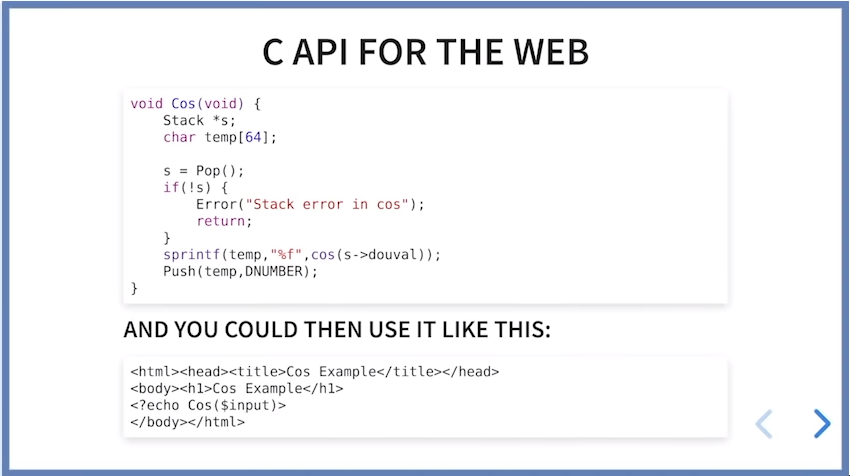
Straight away Rasmus explains he never intended to design a “full-blown” real programming language, but more a templating system. And he wasn’t happy with CGI.pm (“simply writing HTML in another language”). He wanted a C API for the web, where he abstracted away all boiler plate stuff he always needed to write when making a web application. The idea being that the business logic would be written in a real language (C or C++). And PHP was the templating language to present the data. However “the web moved too fast and there weren’t enough C developers in the world”. And with this, his programming language (by request) grew.
What is most striking about this remark, is his dedication towards the end goal: get your business logic online! This initial, pragmatic approach is something that returns time and time again in the development of PHP. With PHP being a means to an end. Just another tool. Nothing to be religious about.
6 months
Rasmus also explains, more than once, that even though he added features he was never under the impression that this little language would survive. In the first few years he was thoroughly convinced it would only last about six more months before something better would come along. And that something would solve the very real problems his language could already solve.
Therefore he also states that for the first 5 to 7 years PHP was “NOT a language, it was a templating system”. But apparently that something never did and reluctantly his templating system grew into a programming language (with recursion and all that).
LAMP wasn’t an accident
However, for someone who was convinced his templating system would die off within six month, he was exceptionally good in making the right decisions in improving the further adoption of PHP.
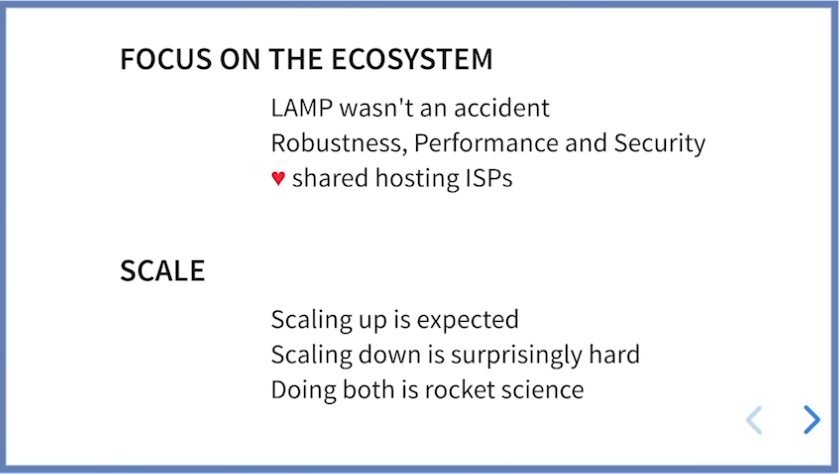
mod_php is probably the most important decision from all of these. It made certain that PHP would tie in nicely with Linux, Apache en MySQL and thus create one of the most powerful (free) software stacks ever. Rasmus is very clear on why he thought it was necessary to become an integral part of this ecosystem. Say what you will, but he definitely made the right call here.
mod_perl was too late to the game. And too complex and expensive (you needed a single box in a time when VMs where not a thing) when it did arrive. Python (the other P) had a different focus and things like Django were many years in the future. But there are more choices Rasmus made that worked, and that the early web clearly needed:
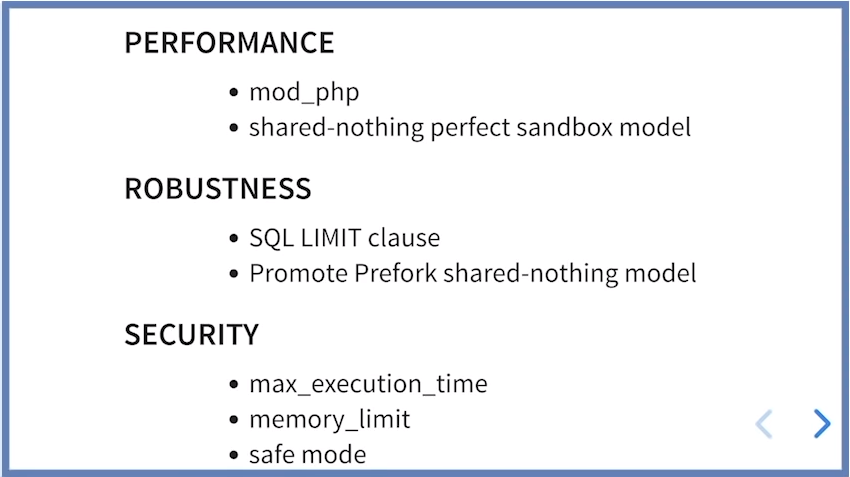
Speed and efficiency
PHP is amazingly good at running crap code.
Rasmus Lerdorf
Anybody with a good idea, could put their idea online and this has made the web a much much better place.
Rasmus Lerdorf
PHP is probably the most pragmatic language ever. A kind of pragmatism that lowers the barrier to entry. Which creates one of the main points of criticism. Because it makes for bad programmers. Programmers that dont really know what they’re doing because PHP does all the work for them. You can discuss this all your can, but one thing is clear: Rasmus knows who uses his language and makes certain to lower as many barriers as he can.
Critique
Rasmus is of course a very intelligent guy, he knows all this. He also explains some of the reasons of strange language design decisions he made. Some have a good explanation, others he fully admits he made the wrong decision. Admirably his ego is also subjected to pragmatism.
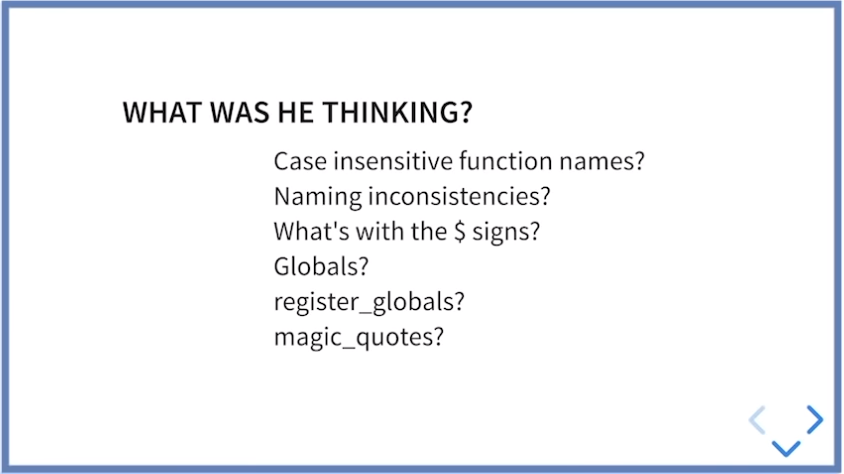
Pragmatic Hypertext Preprocessor
PHP is a tool. PHP is not important, what you do with it is important.
Rasmus Lerdorf
Arguing about the color of the hammer used to built that thing is just moronic. We can’t lose track of what we’re doing here why we’re programming. We’re programming to solve a problem and hopefully it’s a problem that actually matters.
Rasmus Lerdorf
PHP is not going away. Why? Because some of the things that PHP solves, are not yet solved by any other language (don’t add me). I am comp-sci graduate, and even though I program very little and I have probably written more code in PHP code than any other language. I am not building big important business applications, most of the time I just want something online (from a database) and I want it fast! And PHP is my hammer. Time and time again I try to look at other things. And I get it. There is serious critique. But if you want to change that, you can! Nobody is stopping you. So stop complaining and get to it. Even though I don’t share the otherwise harsh tone of this post I do share that building something compelling is up for grabs!
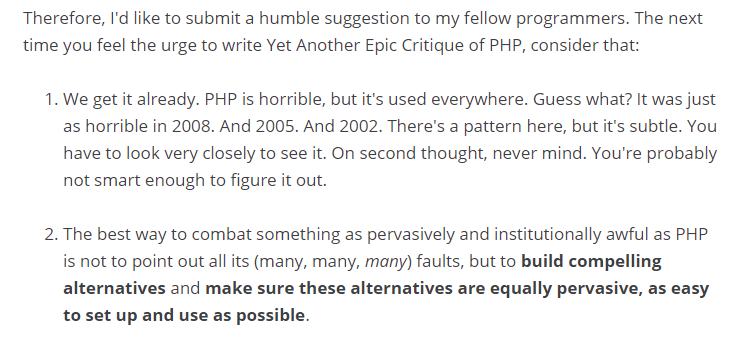
And when someone finally does that, then maybe Rasmus — after 25 years — will finally get his wish. It just took a little bit longer than six months.

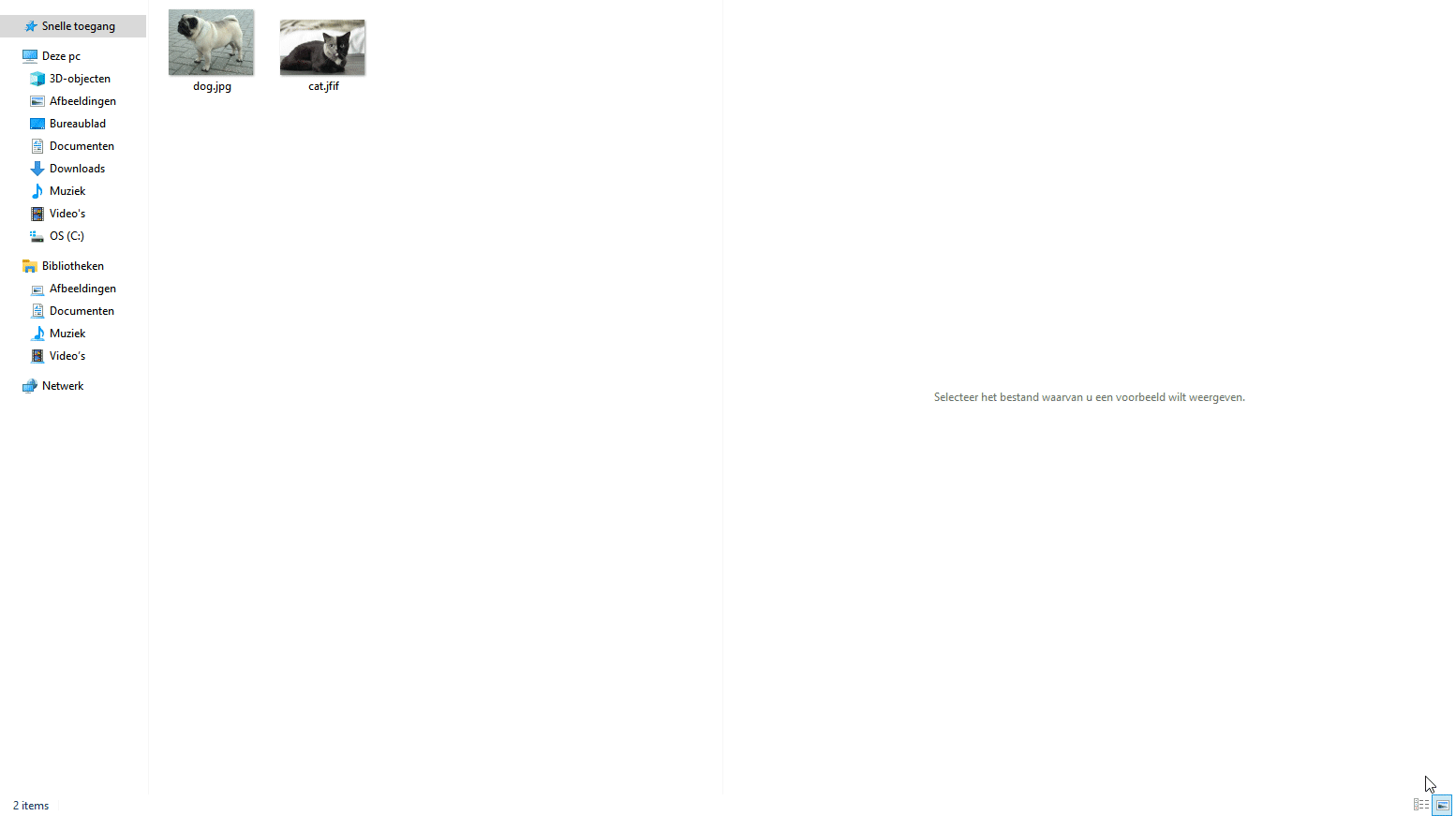
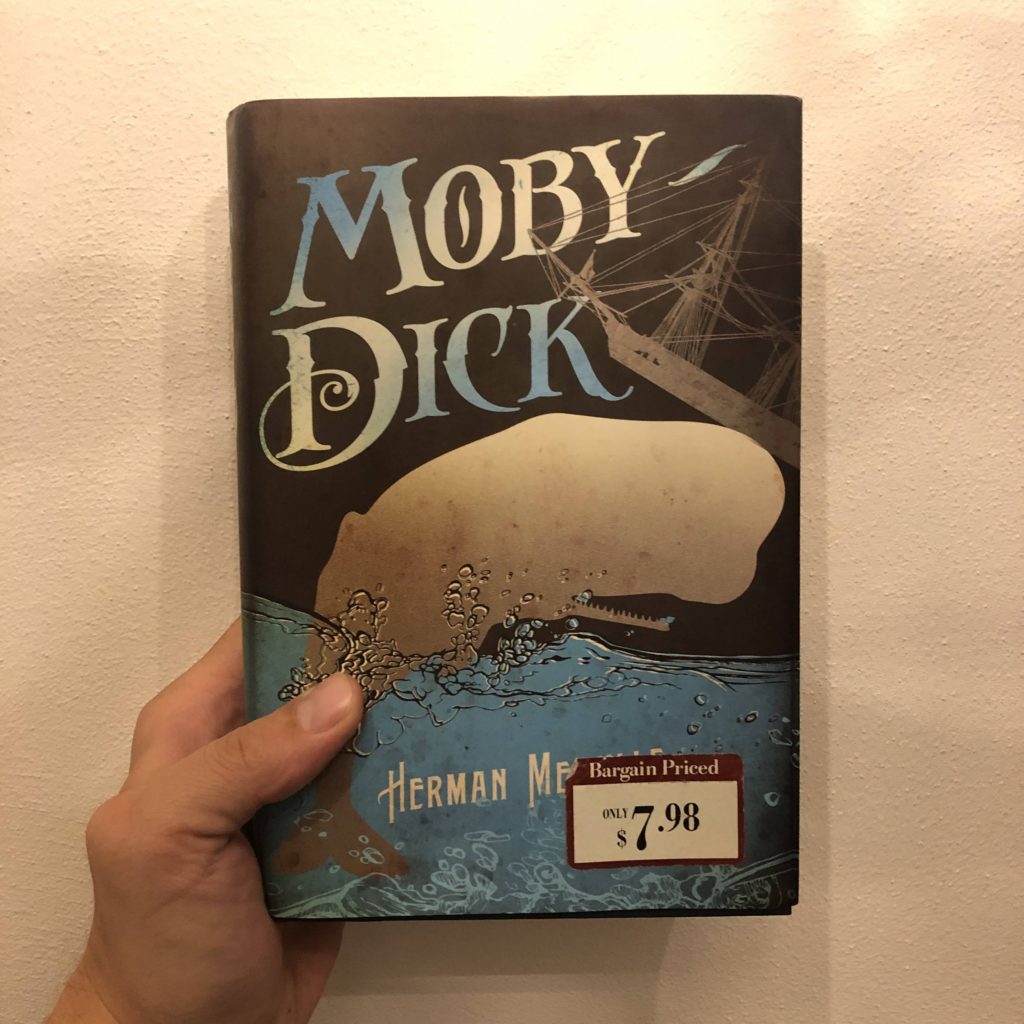
The people writing comments on the internet about how horrible php is are missing the entire point of why people use PHP as opposed to using java or go or something more stricter typed. These people have moved from programming onto the business of telling other people how to write programs. These people are the people who sit on the internet shilling, snake oil salesmen, writing books, looking for next circle-jerk and think that software is eating the world. Everyone else is happily writing PHP and moving on with their lives. The problem arises when these same people try to use the popularity of PHP as a spring board to destroy its ease of use.